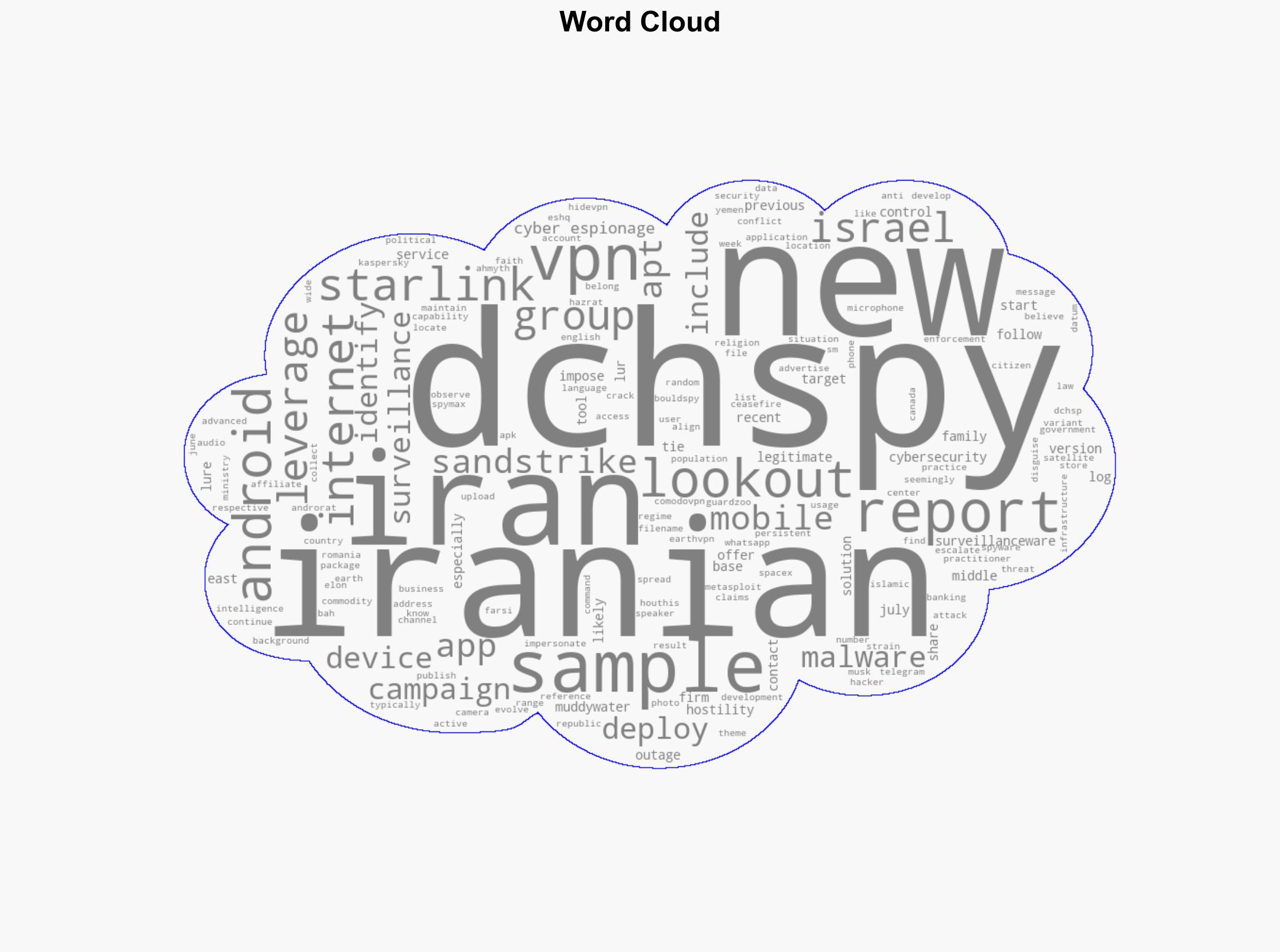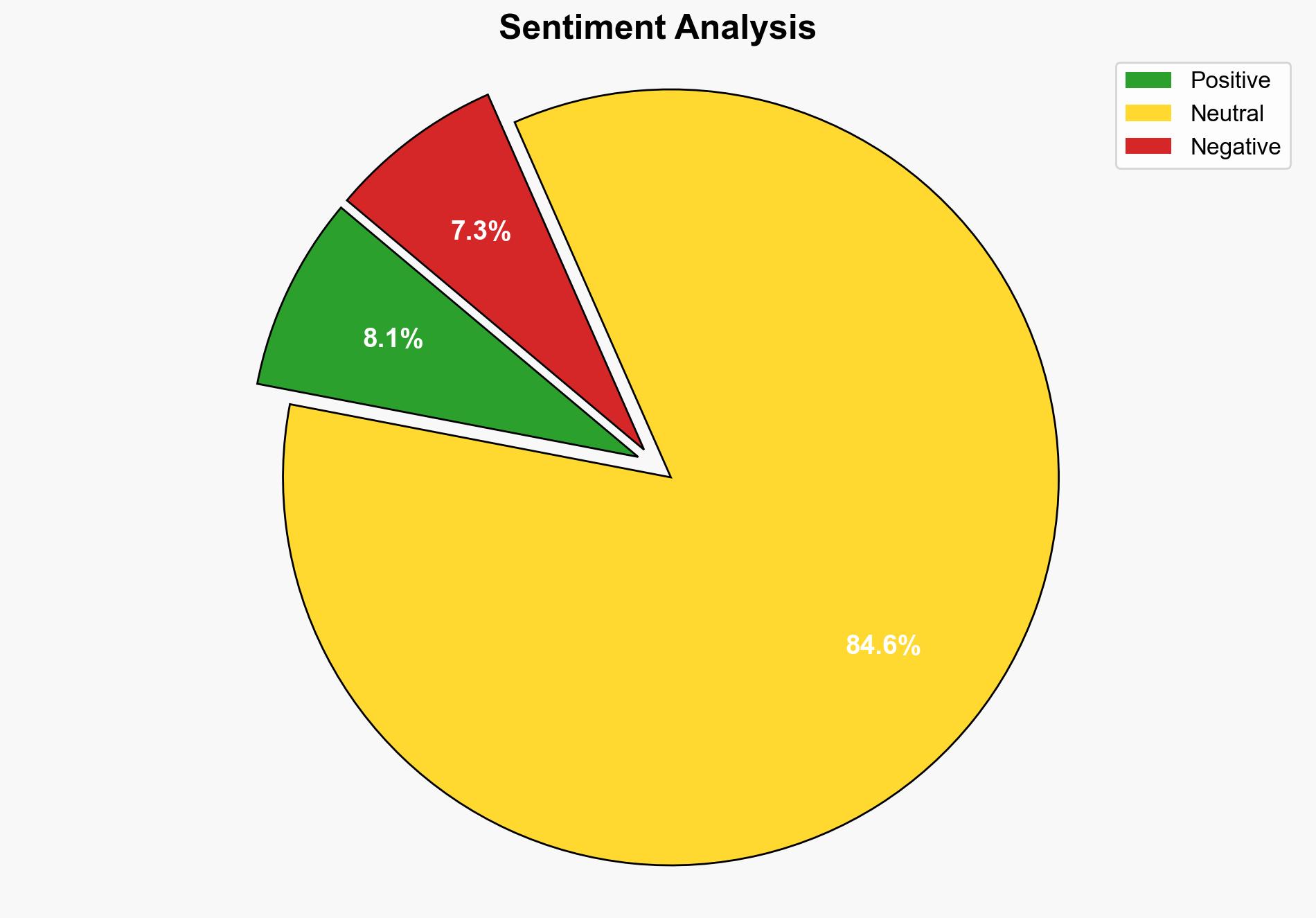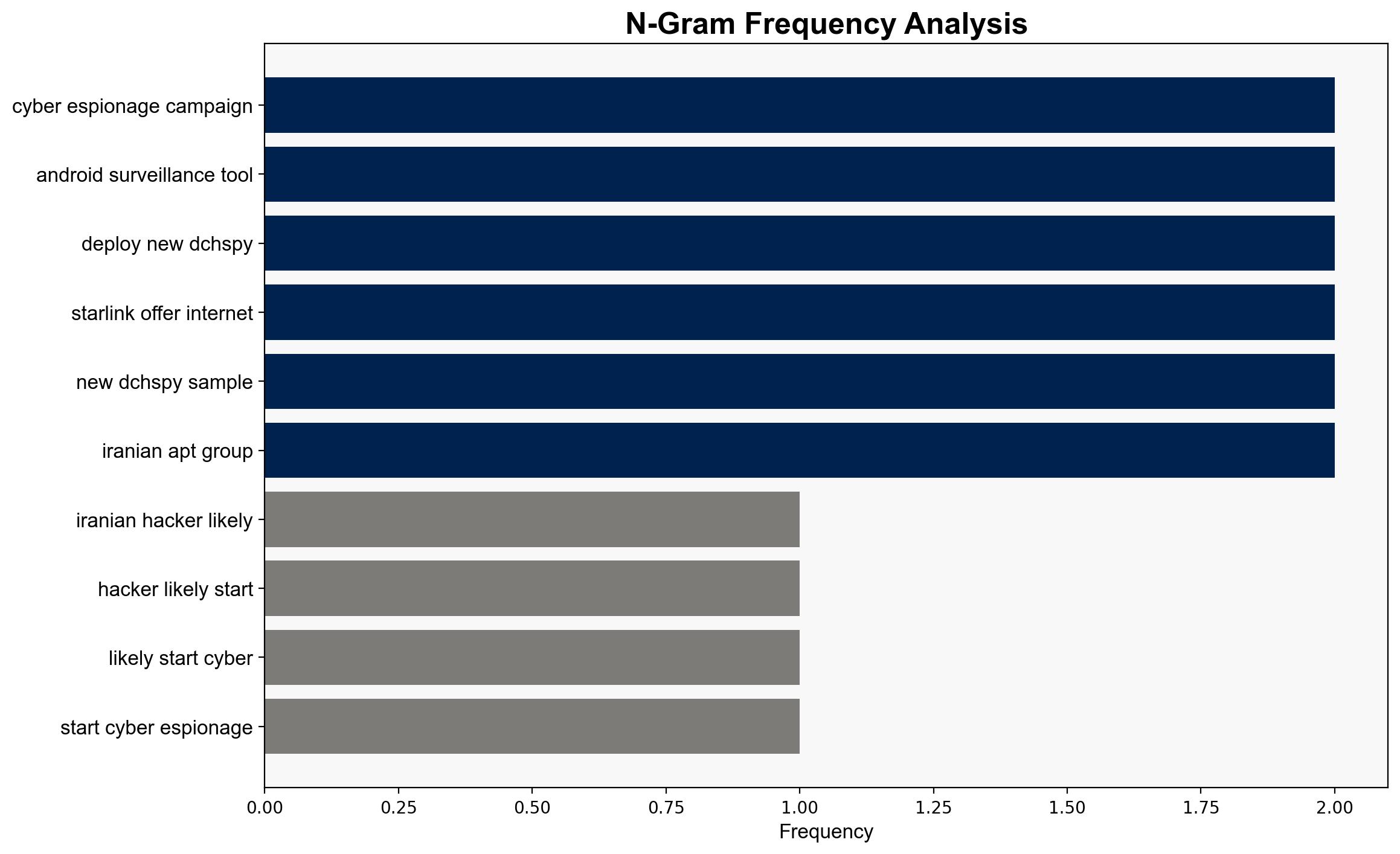Iranian Hackers Deploy New Android Spyware Version – Infosecurity Magazine
Published on: 2025-07-21
Intelligence Report: Iranian Hackers Deploy New Android Spyware Version – Infosecurity Magazine
1. BLUF (Bottom Line Up Front)
Iranian cyber espionage group MuddyWater has developed a new version of the DCHSpy Android spyware, targeting users under the guise of legitimate VPN applications. This campaign coincides with heightened tensions between Iran and Israel, leveraging the Starlink satellite internet service as a lure. The spyware is capable of extensive data collection, posing significant risks to targeted individuals and potentially broader geopolitical stability.
2. Detailed Analysis
The following structured analytic techniques have been applied to ensure methodological consistency:
Causal Layered Analysis (CLA)
The surface event is the deployment of a new spyware version amidst Iran-Israel tensions. Systemic structures involve the use of advanced persistent threat (APT) groups like MuddyWater, affiliated with Iran’s intelligence apparatus. The worldview reflects Iran’s strategic use of cyber capabilities to counter perceived threats and exert regional influence. The myth is the narrative of technological empowerment against foreign adversaries.
Cross-Impact Simulation
The spyware’s deployment could exacerbate regional instability, affecting neighboring states’ cybersecurity postures and potentially triggering retaliatory cyber operations. Economic dependencies on digital infrastructure may be compromised, impacting regional commerce and communication.
Scenario Generation
In a best-case scenario, international cooperation leads to the rapid identification and neutralization of the spyware threat. A worst-case scenario involves widespread data breaches and escalated cyber conflict. The most likely scenario sees continued low-level cyber skirmishes with intermittent disruptions.
3. Implications and Strategic Risks
The deployment of DCHSpy indicates a persistent threat to regional cybersecurity, with potential spillover effects into global networks. The use of legitimate-looking apps increases the risk of widespread infection. The evolving capabilities of such spyware highlight systemic vulnerabilities in mobile security, particularly in politically volatile regions.
4. Recommendations and Outlook
- Enhance cybersecurity collaboration among regional and global partners to share threat intelligence and develop countermeasures.
- Encourage the development and deployment of robust mobile security solutions to detect and neutralize spyware threats.
- Scenario-based projections suggest prioritizing diplomatic efforts to de-escalate regional tensions, thereby reducing the impetus for cyber aggression.
5. Key Individuals and Entities
MuddyWater, Elon Musk (associated with Starlink and SpaceX).
6. Thematic Tags
national security threats, cybersecurity, counter-terrorism, regional focus





